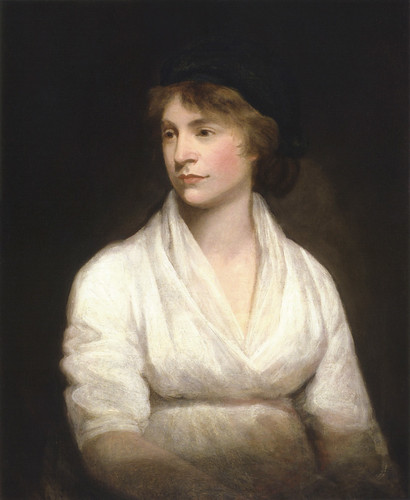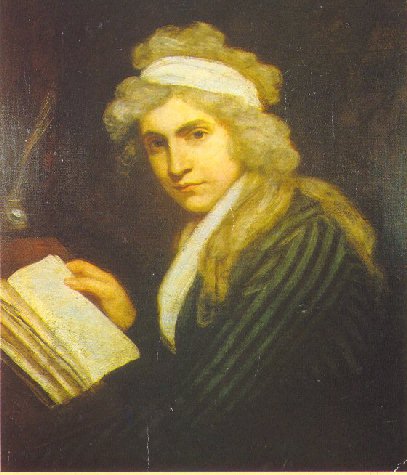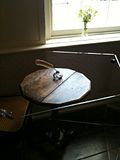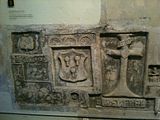
My essay on “Women and Power in the Enlightenment” is late again, in part because I lost most of a work week to the vicissitudes of pediatric dentistry.
A few Mondays ago, my five-year-old bit the inside of his lip while it was numb from the effects the Novocaine administered while he was having a cavity filled. Without ever getting infected or anything, it caused him pretty much the worst pain he’s ever had in his life—including actually teething, and the surgery he had when he was five months old. For most of the week, he couldn’t eat, drink or sleep. For several nights straight, he woke up every hour or two, presumably when his mouth dried out and the sore rubbed against his teeth.
He missed two days of school, and I had to have my TA teach my class on the Friday of that week, while I spent the day at home with my son, coaxing him to drink, tearing up food into tiny pieces and pushing them past his lips into his mouth (because trying to explain to a five-year-old that the merits of nourishment are worth the perils of pain is a losing battle).
This, I kept thinking, is something that birds—who chew up worms and regurgitate them straight into their babies’ mouths—do far better than we humans.
So I was all set to write something about the irony of my essay on “Women and Power” being derailed by the basic disempowerment of maternity. Because, of course, staying home with my son prevented me from the taking up the various forms of power available to me in my professional life: the (hopefully benign) exercise of power involved in getting my students to think about Jane Austen in new ways; the (slightly less gentle) power involved in making sure the Undergraduate major runs smoothly; and certainly the power of having an influence in my field by publishing my ideas about eighteenth-century literature and culture, including that long delayed essay on “Women and Power in the Enlightenment.”
All of that blunted, thwarted, to devote myself to the purely animal concerns of life. What did the Enlightenment ever have to say to women about that?
But then I realized that, from another perspective, what I had been experiencing wasn’t disempowerment at all, but a kind of empowerment that Mary Wollstonecraft—a major figure in my essay—and many other feminist writers of the time had sincerely wished for women: control over the physical, intellectual and moral well-being of their children. Domestic power, in other words.
And even though we’ve been taught by Foucault et. al. to see this as an aspect of a new regime of power, as the inculcation of a self-regulating individual rather than the coercive imposition of force, I’m here to tell you that that’s not what it feels like most mornings in my house.
For what is it but an exercise of power to ensure a minimal level of hygiene(to make sure, as my friend says, that the boys have a bath once a week whether they need it or not)? Or that we all sit down to a meal with actual nutrients in it rather than three bowls of popcorn followed by Oreos, as the boys would prefer? And, believe me, it is nothing but a naked, and somewhat violent, imposition of order upon chaos to get everyone into the car at 8:30 Sunday mornings so that we can make it to Hebrew School in time.
And let's not even talk about homework.
The boys certainly see it that way—see themselves as armed and ardent insurrectionists fighting for their basic rights (to sugar, cartoons and staying up late) against an arbitrary and tyrannical state.
Most of the time, I win, albeit at a not inconsiderable expenditure of energy.
So why does it feel like disempowerment?
The answer to that question is not a paradox, I don’t think, but a misprision—a confusion about what we take power to mean.
Because I’m starting to wonder whether we all live with a kind of post-Romantic conception of power: power as the ability to “get what you want”: ie; Napoleon wanted to invade Russia, and so he did; or “consumer power”—where you chose what you want—a car, a cell phone, a pair of shoes-- and decide to buy it. The power to bend the world around your individual needs and desires. Power, that is, as self-realization.
Whereas the power that Mary Wollstonecraft may have actually been wishing for women, when she asks that women be allowed to be “more observant daughters, more affectionate sisters, more faithful wives, more reasonable mothers—in a word, better citizens” may have been somewhat different.
What domestic power feels like, at any rate, is not a realization of self, but an evacuation of self. Because all those things I listed above have nothing to do with what I “want” (hey-I enjoy Oreos in front the TV as much as anyone), but my allegiance to a set of things I think are right—in Enlightenment terms, things I think are virtuous (things, yes, like the need to wear underwear to kindergarten).
These things are enforced through my will, but they don’t have much to do with my desires, or anything at all to do with my individuality (because, as we all know, the primary reason to wear underwear to kindergarten is because everyone else does). To work well, they require what the eighteenth-century would call a strict disinterestedness, a refusal to let my own feeling interfere, an abnegation of self.
Which may in fact be what Wollstonecraft is calling for in the phrase with which I began the first of these posts, when she say insists that she is not calling for women “to have power over men, but over themselves.”

















